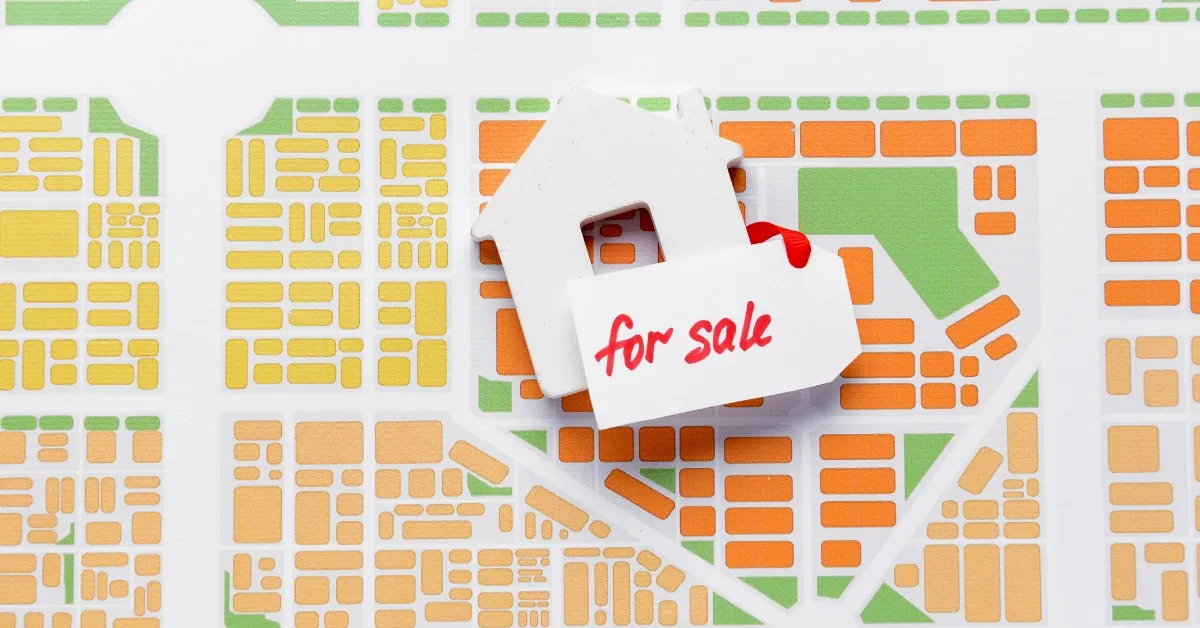
How to Invest in the Philippine Real Estate
Updated on January 07 2026
How to invest in Philippine Real Estate
Investing in Philippine real estate can be a wise decision, especially with the country's booming economy and growing population. However, it is essential to know how to invest wisely in this industry to maximize your potential returns. In this article, we will provide some guidance on how to invest in Philippine real estate. Here are the six steps to becoming a successful real estate investor in the Philippines:
1. Do Your Research

Investing in Philippine real estate can be a lucrative venture, but it's essential to conduct thorough research before making any investment decisions. The following points outline key areas that require careful consideration:
a. Local Real Estate Laws and Regulations
Familiarize yourself with the laws and regulations governing real estate in the Philippines. This includes understanding property ownership restrictions for foreigners, tax obligations, zoning regulations, and any other legal requirements. Consulting with a local real estate lawyer or expert can provide valuable guidance in navigating these legalities.
b. Market Trends and Property Values
Analyze the current market trends in the specific area where you intend to invest. This involves studying property price fluctuations, rental rates, supply and demand dynamics, and overall market stability. Keep an eye on factors that could impact property values, such as upcoming infrastructure projects, economic development plans, and demographic shifts. A best example of this are properties from Antipolo Rizal, a 15 million house from an exclusive subdivision in 2003 ballooned to a whopping 25 million valuation in present valuation.
c. Location Considerations
The location of the property plays a crucial role in its investment potential. Research the neighborhood or city where the property is situated, evaluating its desirability and growth potential. Factors to consider include proximity to amenities like schools, hospitals, shopping centers, public transportation, and major employment hubs. A location with robust infrastructure and amenities tends to attract tenants or buyers, enhancing the property's value over time. It would also be good to consider the history of flooding within the area, how close it is to fault lines, because these are factors that can affect the value of the property. A perfect example to this are the prices of properties in Marikina that drastically dropped in valuation due to typhoon Ondoy back in 2008, in which the frequency of flooding in the area occurs during rainy seasons.
d. Developer and Property Track Record
If you are considering purchasing a property from a developer, conduct due diligence on their reputation, track record, and financial stability. Research their previous projects, quality of construction, delivery timelines, and customer reviews. A reliable and reputable developer increases the likelihood of a successful investment. We suggest availing properties from trusted sellers such as assetmart.global.
2. Choose the Right Type of Property

There are several types of real estate properties in the Philippines, including residential, commercial, and industrial. You need to determine which type of property is best suited for your investment goals. For example, if you are looking for a steady stream of rental income, investing in a residential property might be the right choice. On the other hand, investing in commercial property might offer higher returns in the long run. Here is a list of properties you may invest on in the Philippines:
a. Residential Properties
Residential properties refer to homes, apartments, or condominium units designed for individuals and families to live in. This type of property can provide a steady stream of rental income if you decide to lease it out. The demand for residential properties in the Philippines remains high, driven by population growth, urbanization, and the increasing number of young professionals and families seeking housing. It's crucial to research the location, amenities, and target market to ensure a desirable residential property investment. These are properties mostly being offered by Camella, SMDC, Ayala, Bria, and many other developers, click here to see the listing under assetmart.global.
b. Commercial Properties
Commercial properties encompass office buildings, retail spaces, shopping centers, and hotels. Investing in commercial properties can offer potentially higher returns in the long run, particularly in prime locations with high foot traffic and strong economic activity. The Philippines has a growing business sector and a thriving retail industry, making commercial properties an attractive investment option. However, commercial investments may require a larger capital outlay, longer lease terms, and active management to attract and retain tenants. These are mostly buildings and properties near business districts and are used for business purposes, a lot of these are present around Makati, Bonifacio Global City, and Ortigas.
c. Industrial Properties
Industrial properties consist of warehouses, manufacturing facilities, logistics centers, and industrial parks. The growth of e-commerce and manufacturing sectors in the Philippines has increased demand for industrial spaces. Investing in industrial properties can provide stable rental income, especially in key economic zones and areas with strong logistics infrastructure. Consider factors such as proximity to transportation networks, ease of accessibility, and demand from industries when evaluating industrial property investments. This being the case, industrial properties are more common in the provinces such as Laguna and Antipolo, where there are a lot of factories present in making various products.
d. Mixed-Use Developments
Mixed-use developments combine different property types within a single project, often including a combination of residential, commercial, and sometimes even recreational or entertainment spaces. These developments offer a diverse range of opportunities for investors. They cater to the needs of residents, tenants, and visitors by providing a complete live-work-play environment. Mixed-use developments are gaining popularity in urban areas and can offer potential advantages in terms of convenience, tenant retention, and overall value appreciation.
3. Partner with a Reputable Real Estate Developer

When venturing into real estate investment in the Philippines, partnering with a reputable real estate developer can significantly enhance your chances of success. Here are several key advantages of partnering with such a developer:
a. Expertise and Market Knowledge
Reputable developers have a deep understanding of the local real estate market. They possess extensive knowledge of market trends, demand patterns, and emerging opportunities. Partnering with a developer allows you to tap into their expertise, benefiting from their insights into the best locations, property types, and investment strategies. Their market knowledge can help you make informed decisions based on comprehensive research and analysis. Our assetmart global advisers can assist you with any property questions you may have.
b. Established Network and Resources
Reputable developers have an established network of professionals, including architects, engineers, project managers, and contractors. They have strong relationships with industry experts, which can be invaluable in ensuring the smooth progress of your investment. Developers with a robust network can efficiently manage construction timelines, coordinate necessary inspections, and resolve any challenges that may arise during the development process. Assetmart global offers you a variety of properties from the different developers we are connected to, so we may also offer you the best properties they have.
c. After-Sales Support
Partnering with a reputable developer means that you can expect reliable after-sales support. They typically provide ongoing property management services, maintenance, and customer support. This can be particularly beneficial if you plan to lease or sell the property, as the developer's continued involvement can help attract and retain tenants or buyers, ensuring a smooth transition and optimal return on investment. In assetmart global we not only help you find your new home, we also help you settle into your new home and properties.
4. Choose the Right Location

The Philippines offers several top places to live that are popular among locals and expatriates. These locations provide a combination of desirable amenities, infrastructure, and quality of life. Here are some of the top places to consider for real estate investment:
a. Makati City, Metro Manila
Known as the central business district of Metro Manila, Makati City is a thriving commercial and residential hub. It is home to major corporations, luxury residential developments, shopping malls, and a vibrant nightlife. Makati offers a cosmopolitan lifestyle, excellent connectivity, and a wide range of amenities, making it a highly sought-after location for both residential and commercial real estate investments.
b. Bonifacio Global City (BGC), Taguig City
BGC is a rapidly developing area in Metro Manila, renowned for its modern infrastructure, upscale residential communities, and commercial establishments. It features a well-planned layout, wide sidewalks, and green spaces. BGC has become a preferred destination for young professionals, expatriates, and families due to its vibrant atmosphere, high-end residential options, and a thriving business district.
c. Quezon City, Metro Manila
As the largest city in Metro Manila, Quezon City offers a diverse range of residential neighborhoods and commercial centers. It is home to government institutions, universities, and major shopping complexes. With its numerous residential communities, convenient transportation links, and abundant amenities, Quezon City provides a variety of real estate investment opportunities, catering to different market segments.
d. Cebu City
Located in the central part of the Philippines, Cebu City is a major urban center and a rapidly growing economic hub in the Visayas region. It boasts a bustling cityscape, a mix of residential and commercial developments, and a thriving tourism industry. Cebu City offers a balanced lifestyle with a combination of urban conveniences and natural attractions, making it an attractive location for real estate investments.
e. Davao City
Situated in the southern part of the Philippines, Davao City is known for its safety, cleanliness, and eco-friendly initiatives. It has a stable economy, supported by industries such as agriculture, manufacturing, and services. Davao City offers a pleasant climate, natural beauty, and a growing urban landscape. Real estate investments in Davao City can benefit from the city's continuous development and increasing demand for quality residential and commercial properties.
f. Alabang, Muntinlupa City
Alabang is a suburban area located in the southern part of Metro Manila. It offers a mix of residential communities, commercial centers, and business districts. Alabang is known for its well-planned neighborhoods, good schools, shopping malls, and accessibility to transportation hubs. Real estate investments in Alabang can appeal to families and individuals seeking a more relaxed and suburban lifestyle.
You may check the properties available in these areas by clicking here.
5. Consider Financing Options

Real estate investment in the Philippines can be expensive, and it is essential to consider financing options. Some financing options to consider include bank loans, home equity loans, and seller financing. You need to evaluate the interest rates, terms, and conditions of each financing option to determine which one is best suited for your investment goals. Here is a list of financing options you may take:
a. Bank Loans
Banks in the Philippines offer various types of loans specifically designed for real estate investment. These loans include home loans, housing loans for construction or renovation, and commercial loans. Bank loans typically require a downpayment and have specific eligibility criteria, such as income requirements and creditworthiness. Evaluate different banks, compare interest rates, loan terms, and processing fees to find the most favorable loan option for your investment.
b. Home Equity Loans
If you already own a property with equity, you may consider tapping into that equity through a home equity loan. A home equity loan allows you to borrow against the value of your property, using it as collateral. The loan amount is based on the appraised value of the property minus any outstanding mortgage. Home equity loans can provide access to a significant amount of capital that can be used for real estate investment purposes. However, it's essential to assess the risks involved and consider the impact on your existing property's equity.
c. Seller Financing
In some cases, the property seller may be willing to offer financing options to potential buyers. Seller financing, also known as owner financing, allows you to make installment payments directly to the seller instead of obtaining a traditional loan from a financial institution. This option can be beneficial if you face challenges securing financing from banks or prefer a more flexible payment arrangement. However, it is crucial to negotiate the terms, interest rates, and repayment schedule with the seller and ensure that the agreement is legally binding.
Investing in Philippine real estate can be a lucrative opportunity if done correctly. By conducting thorough research, choosing the right type of property, partnering with a reputable developer, selecting the right location, evaluating the potential return on investment, and considering financing options, you can minimize the risks and maximize your potential returns. It is essential to seek professional advice and do your due diligence before investing in Philippine real estate to ensure a successful investment.